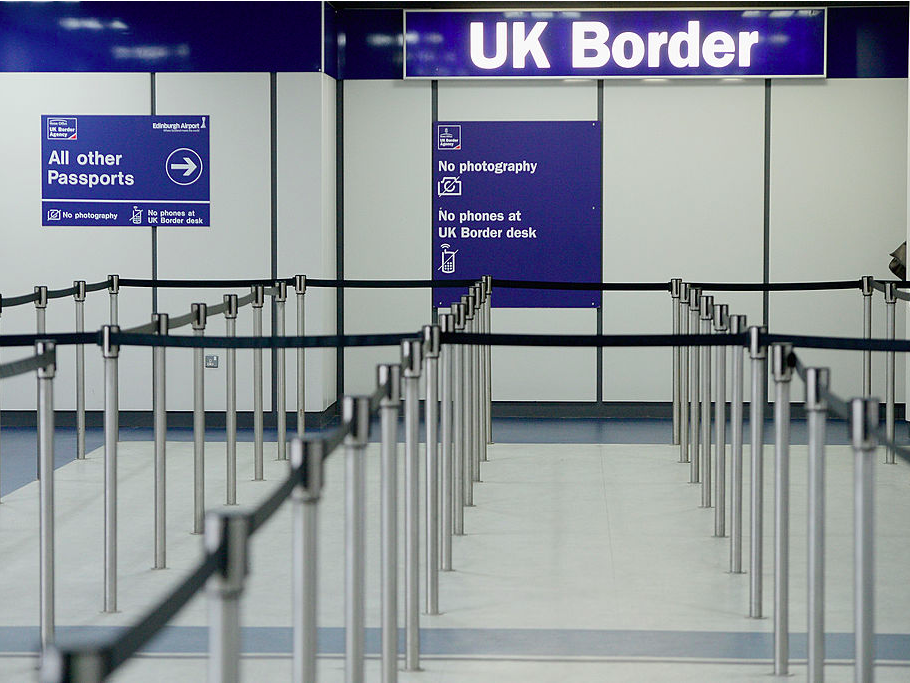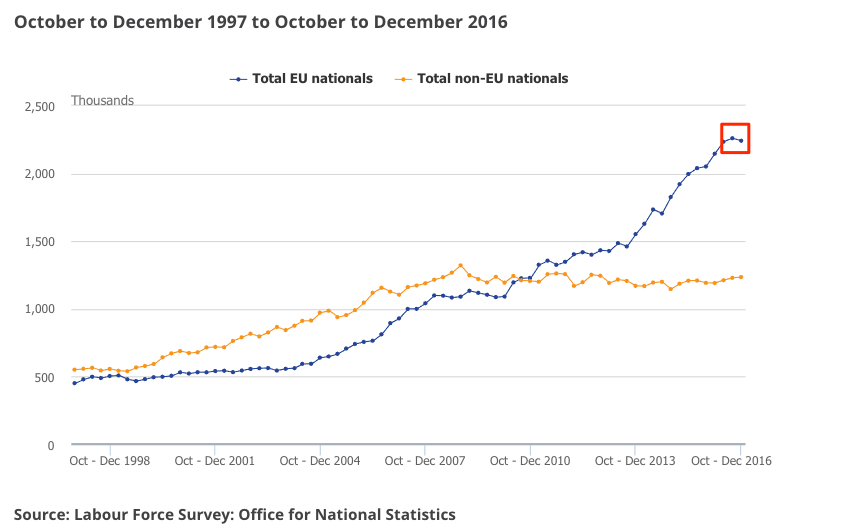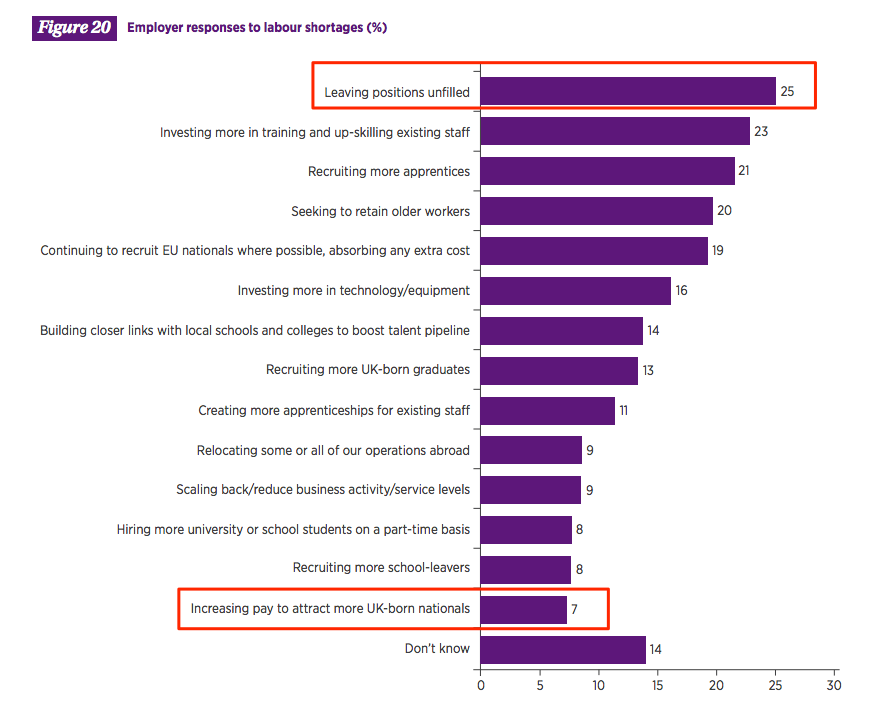The number of EU workers in Britain is starting to fall

Jeff J Mitchell / Getty
The number of European Union nationals working in the UK fell in the last quarter of 2016, official data showed, adding to fears of a skills shortage.
The Office for National Statistics said the number of EU workers fell by 50,000 to 2.3 million in the final three months of last year – the biggest drop in five years according to Bloomberg.
Meanwhile, a survey by human resources group CIPD found that "almost one in three employers said that EU nationals were looking to leave their organisation as a direct result of Brexit."
Gerwyn Davies, labour market adviser at the CIPD: "The most recent official data suggest that there has been a significant slowdown in the number of non-UK nationals from the European Union in work in the UK."
"This is creating significant recruitment challenges in sectors that have historically relied on non-UK labour to fill roles and who are particularly vulnerable to the prospect of future changes to EU immigration policy," Davies said.
"With skills and labour shortages set to continue, there’s a risk that many vacancies will be left unfulfilled which could act as a brake on output growth in the UK in the years ahead."
Here is the ONS chart in context, showing the trend from 1997:

ONS
Worst hit has been the public sector, with 43% of education and 49% of healthcare sector employers said "they believed EU migrants among their workforce were considering leaving their organisation and/or the UK in 2017."
But this is unlikely to benefit UK workers. Around a quarter of employers said they would leave positions vacated by EU workers unfilled, with fewer than a tenth saying they would pay more to attract UK workers.
Here is the chart:

CIPD
Students from the European Union also appear to have been put off from studying in the UK following last year's Brexit vote.
The number of applications to UK universities from students in the European Union has shrunk by 7% in the wake of the Brexit vote, according to figures from UCAS. EU applications are down to 42,070 from 45,220 the year before.
NOW WATCH: This is why Wall Street is able to stay one step ahead of federal investigations
See Also:
SEE ALSO: Applications to UK universities from EU students are down 7% since the Brexit vote

 Yahoo Finance
Yahoo Finance 
